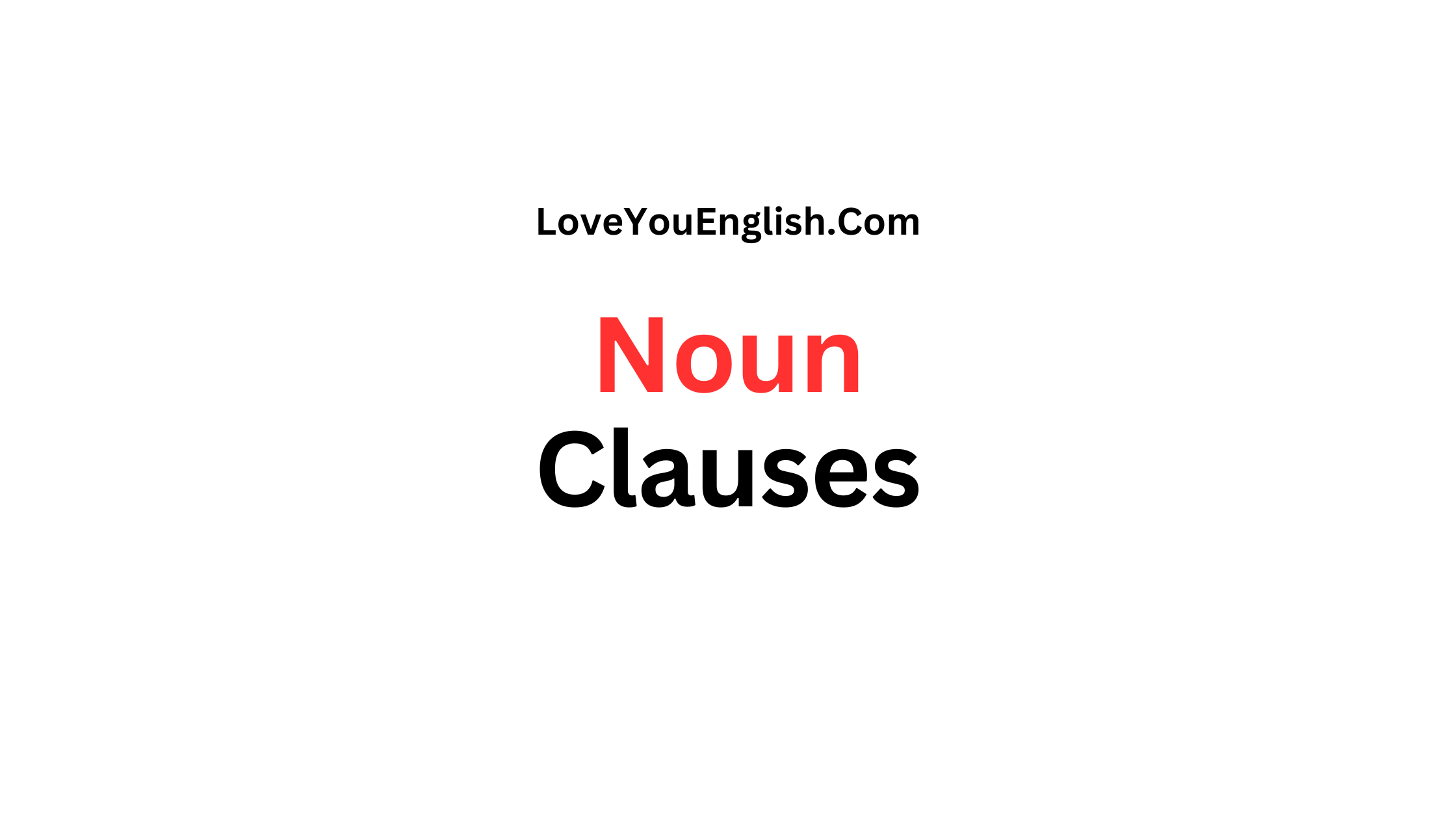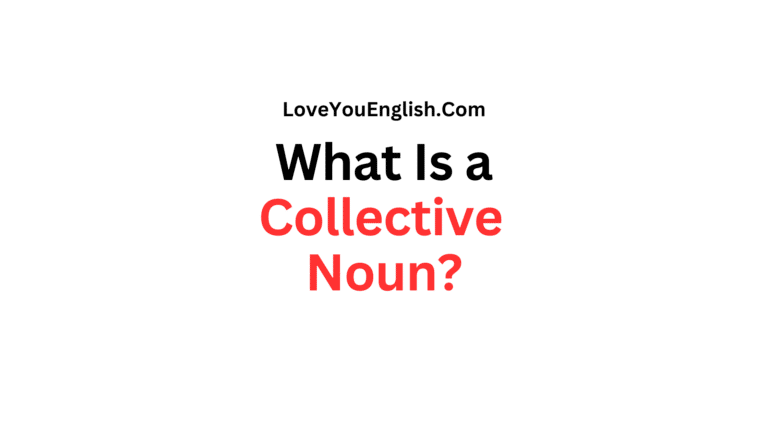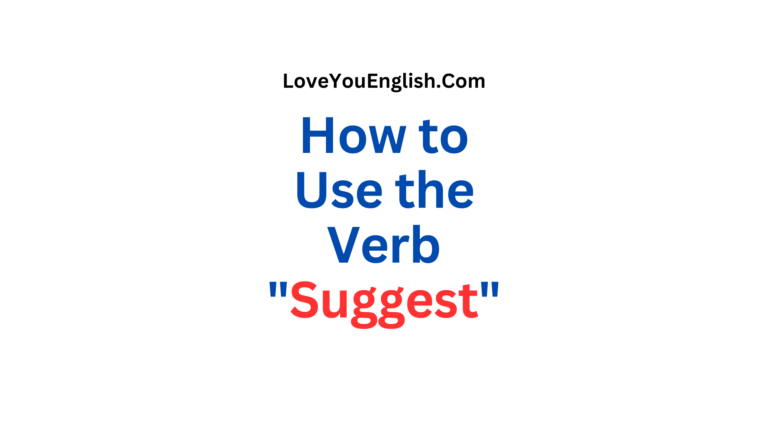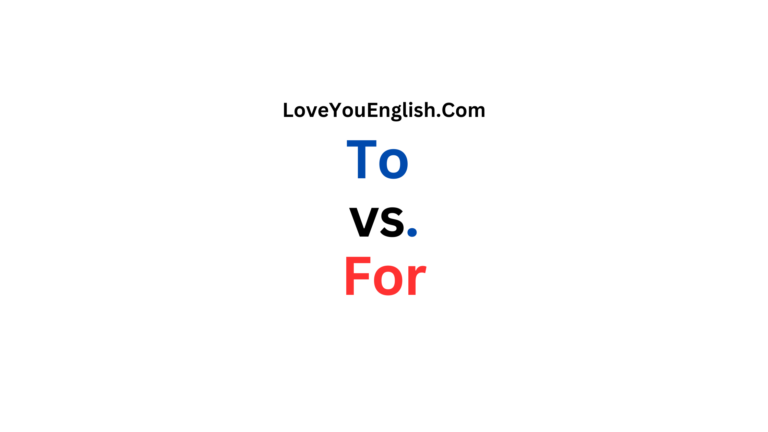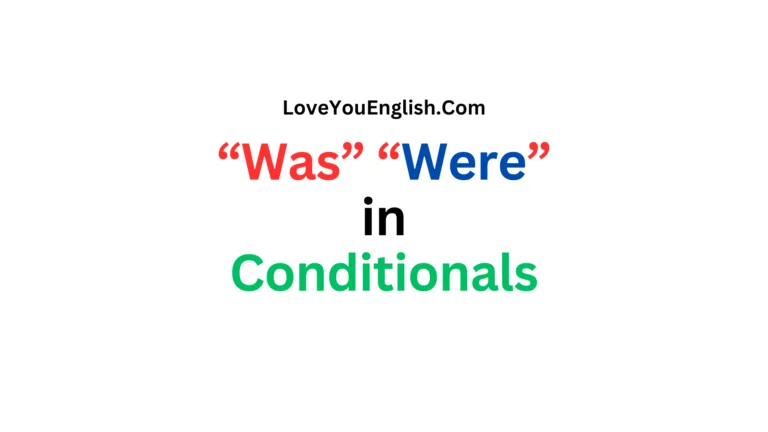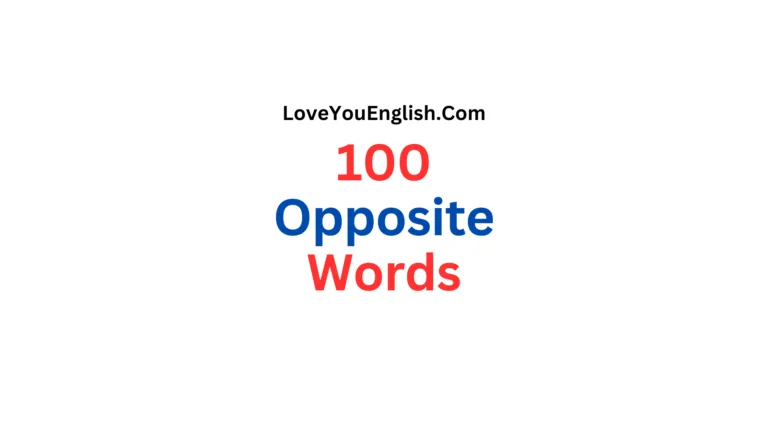A Guide to Noun Clauses
In the wide world of English grammar, noun clauses are important and flexible parts of complex sentences.
If you’re a student wanting to enhance your writing, an English learner striving for fluency, or just someone curious about language details, knowing about noun clauses is key.
This post will cover everything you need to understand about noun clauses, from their basic meaning to more advanced uses and common mistakes to watch out for.
What is a Noun Clause?
Basically, a noun clause is a dependent clause that acts like a noun in a sentence.
Just like a single-word noun, a noun clause can be the subject, object, or complement in a sentence.
But unlike a simple noun, a noun clause has its own subject and predicate, making it a more detailed part of sentence structure.
To really understand noun clauses, it’s important to look at their parts:
Dependent Clause: A noun clause can’t stand alone as a full sentence. It needs the main clause to complete the thought.
Subject and Predicate: Inside the noun clause, there is a subject (the main idea of the clause) and a predicate (what is being said about that subject).
Noun Function: Even though it’s more complex, a noun clause works the same way as a simple noun in a sentence.
Noun Clauses Explained
Noun clauses can be grouped by the words that start them.
Here are the main types:
- That-clauses: For example, I think that we will win.
- Wh-clauses: These start with words like what, where, when, why, who, whom, which, and whose. An example is: I have no idea where she went.
- If/Whether-clauses: For instance, He wanted to know if I could assist him.
- Embedded Questions: An example is: The question is how we can fix this issue.
Roles of Noun Clauses in Sentences
Noun clauses are super flexible and can take on different jobs in a sentence:
- Subject: For example, What you choose doesn’t matter to me.
- Direct Object: An example is: I heard that you got a new job.
- Indirect Object: For instance, Give whoever arrives first the award.
- Object of a Preposition: An example is: We discussed what happened yesterday.
- Subject Complement: For example, The truth is that mistakes were made.
- Object Complement: An example is: They chose him to be what he always wanted.
- Appositive: For instance, The fact that he lied shocked everyone.
Finding Noun Clauses
Spotting noun clauses in sentences gets easier with practice.
Here are some tips to help you find them:
- Look for dependent clauses that answer “what?” or “which?”
- See if the clause can be swapped with a pronoun like “it” or “that.”
- Identify the starting word (like that, what, where, etc.) and check if it has a subject and verb.
- Try to separate the clause and see if it acts like a noun in the sentence.
Noun clauses are usually started with certain words or phrases.
Knowing these can help you identify noun clauses more easily:
- That
- What
- Whatever
- When
- Where
- Wherever
- Why
- How
- Who
- Whom
- Whose
- Which
- Whether
- If
Noun Clauses Compared to Other Types of Clauses
To really get a grip on noun clauses, it’s useful to see how they differ from other clauses:
Noun Clauses vs. Adjective Clauses
Noun Clause: I don’t know what he wants.
Adjective Clause: The book that I’m reading is really interesting.
Noun Clauses vs. Adverb Clauses
Noun Clause: I wonder where she went.
Adverb Clause: I’ll meet you where we first met.
The main difference is in what they do in a sentence.
Noun clauses act like nouns, adjective clauses describe nouns, and adverb clauses describe verbs, adjectives, or other adverbs.
Advanced Uses of Noun Clauses
Once you get the hang of basic noun clauses, you can try some more advanced uses:
Noun Clauses in Reported Speech
Direct: She said, “I will come tomorrow.”
Reported: She said that she would come the next day.
Noun Clauses in Formal Writing
Formal writing often uses noun clauses to express complicated ideas clearly.
Example: The committee decided that more research was needed.
Noun clauses can help create indirect questions.
Example: Could you tell me where the nearest bank is?
Noun Clauses with Subjunctive Mood
In some situations, especially with verbs that show demands or suggestions, the verb in the noun clause might use the subjunctive form.
Example: The doctor insisted that he take the medicine every day.
More grammar topics:
- When to Use “Choose” vs. “Chose”: A Comprehensive Guide
- Use of “Has Been,” “Have Been,” and “Had Been” in English
- Understanding the Difference Between All, Each, and Every
- Difference Between “Anyone” and “Any One”
- Understanding English Pronouns: I, Me, Myself, and My
Mistakes People Make and How to Fix Them
Even people who speak English all the time can mess up with noun clauses.
Here are some common mistakes and how to avoid them:
Mixing Up Noun Clauses and Relative Clauses
Incorrect: I know the woman who works at the cafe. (This is a relative clause)
Correct: I know who works at the cafe. (This is a noun clause)
Leaving Out “That” When You Need It
Incorrect: I hope you will join us.
Correct: I hope that you will join us.
Note: You can often skip “that,” but using it can make things clearer, especially in formal writing.
Getting the Word Order Wrong in Embedded Questions
Incorrect: I wonder where is the park.
Correct: I wonder where the park is.
Not Changing Pronouns and Verb Tenses in Reported Speech
Incorrect: He said, “I am studying for the test.”
Correct: He said that he was studying for the test.
Confusing “Whether” and “If”
“Whether” is usually more formal and can be used before infinitives, while “if” cannot.
Example: I don’t know whether to laugh or cry.
Punctuating Noun Clauses
Using the right punctuation is really important with noun clauses.
Here are some tips:
- When a noun clause starts a sentence, you usually don’t need commas. Example: What you choose to do is up to you.
- When a noun clause comes after a main clause, it usually doesn’t need a comma. Example: I think that kindness is important.
- However, if the noun clause acts like an appositive, you might need commas. Example: The news, that she won the award, was exciting.
- In questions, the question mark should go at the end of the whole sentence, not inside the noun clause. Example: Do you know where he is going?
Noun Clauses in Various Situations
Learning how noun clauses work in different situations can really boost your language skills:
In Literature, writers often use noun clauses to make their stories richer and more interesting.
For example: “What I fear most is the loss of what I’ve never had.” – Joan Didion.
In Academic Writing, noun clauses are important for discussing complicated ideas and theories.
For instance: The study shows that regular exercise helps improve brain function.
In Everyday Conversation, we often use noun clauses in our talks without even noticing.
In Legal Language, legal documents use noun clauses to be clear and cover all possible situations.
For example: The contract states that all parties must agree to the terms before moving forward.
In Journalistic Writing, reporters use noun clauses to share information in a straightforward and unbiased way.
For instance: The spokesperson confirmed that negotiations were still happening.
The Effect of Noun Clauses on Writing Style
Getting good at using noun clauses can really enhance your writing:
Complexity: Noun clauses help you express complicated ideas in one sentence, making your writing sound more advanced.
Concision: By using noun clauses, you can often share information more briefly than if you wrote several simple sentences.
Clarity: When used properly, noun clauses can clarify your meaning by clearly linking ideas together.
Variety: Mixing different types of noun clauses can make your sentence structures more diverse, which keeps your writing interesting.
Emphasis: Placing noun clauses in certain spots can help highlight important information in a sentence.
Conclusion
Noun clauses are essential parts of complex sentences in English.
They help us share detailed thoughts, report what others say, ask questions indirectly, and make our communication richer.
By learning about the different kinds of noun clauses, what they do, and how to use them properly, you can really improve your language skills.
Just like with any part of language, getting good at noun clauses takes practice. Don’t feel bad if they seem tough at first.
With time and regular practice, you’ll start using these flexible clauses in your speaking and writing, making your communication clearer and more sophisticated.
Whether you’re working on a school paper, telling an interesting story, or just trying to express yourself better in everyday conversations, knowing how to use noun clauses will be very helpful.
So, keep practicing, stay curious, and you’ll see your English skills getting better as you learn more about noun clauses.

